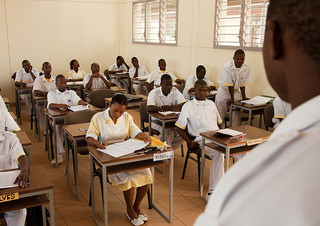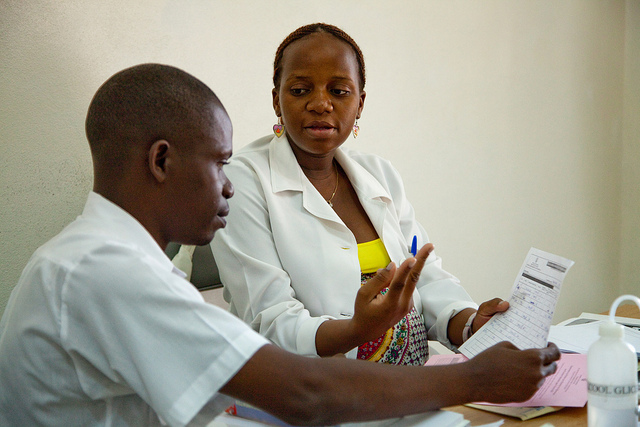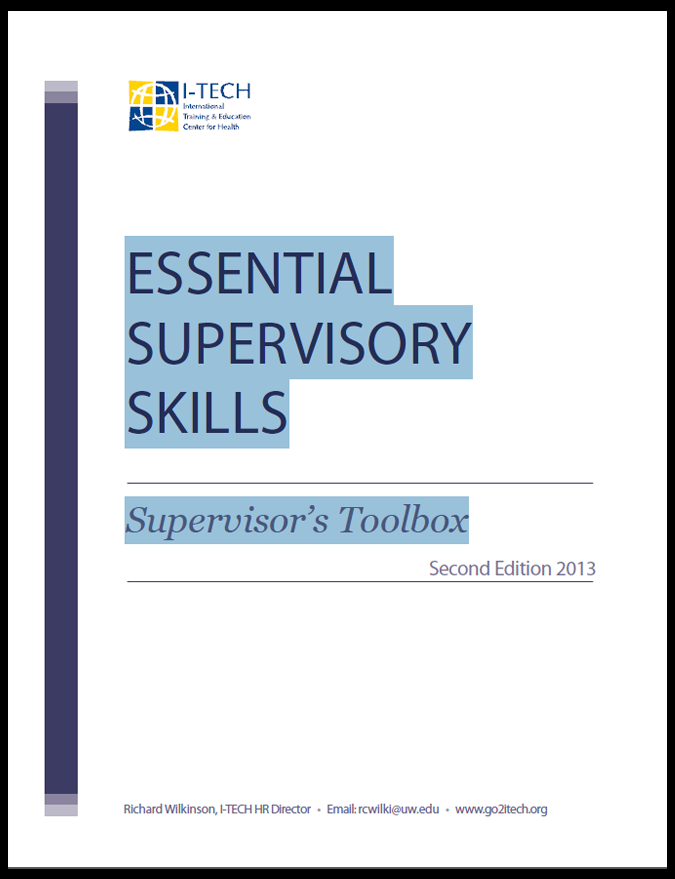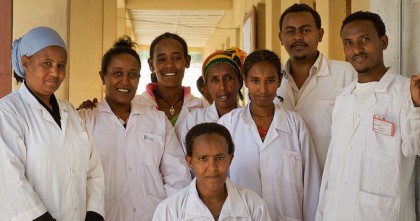
Overview of I-TECH Ethiopia
Since 2003, I-TECH Ethiopia has been working with the Federal Ministry of Health, Federal HIV/AID Program Coordinating Office, Regional Health Bureaus, civil society and other partners to provide technical assistance to support the knowledge, capacity, and skills of health care workers and improve Ethiopia’s health care systems.
I-TECH works primarily in the three northern regions of the country, Afar, Amhara, and Tigray, to support comprehensive HIV and AIDS programs and health systems strengthening in 60 health facilities (36 hospitals and 24 health centers) plus four regional laboratories. Together, these regions account for nearly 40% of the national HIV burden. Originally, I-TECH’s work focused on increasing access to HIV treatment and care, and on preparing health care workers to face the challenges associated with the epidemic. Increasingly, I-TECH is expanding this work to focus on a wide-reaching portfolio of health programs. These efforts are designed for sustainable transition to local ownership — allowing them to become an enduring part of the national health care system.
Updates
Integration of Mental Health and HIV Services
People living with HIV (PLHIV) are at higher risk for mental health problems which affects their health and quality of life. Mental health problems are more than twice as common among PLHIV then the general population. This may be even higher in communities where stigma and discrimination are rampant. In addition mental health services are limited in Ethiopia.
I-TECH Ethiopia has been strengthening the national mental health integration initiative. Specifically, in collaboration with the Ethiopian Regional Health Bureaus in Amhara, and Tigray and the Regional Networks of HIV Positive People, I-TECH initiated a pilot project for mental health integration through screening and management of common mental health conditions by using a task shifting approach since December 2012. ART clinicians and case managers have been trained on screening for mental health condition using a pre-tested simple screening tool adapted by I-TECH at four hospitals in Amhara and Tigray regions. The goal of the project is not only to provide comprehensive health services to PLHIV but to also improve adherence to care and treatment.
Debra Brehan Referral Lab Launch
The Debra Brehan Referral Hospital Laboratory was inaugurated on Sunday, June 16th by the US Ambassador to Ethiopia, Ambassador Donald Booth; Ethiopian State Minister, Dr. Amir Aman and Amhara National Regional State Vice President and Educational Bureau Head, Binalf Andualem. The laboratory was renovated and equipped by I-TECH Ethiopia with funds from the US government and the President’s Emergency Plan for AIDS Relief (PEPFAR) as well through partnership with the Amhara Regional Health Bureau and the Debra Brehan Hospital.
The laboratory was built to international standards to provide high quality laboratory tests and services to the Debra Brehan Referral Hospital and can service 450 patients per day. It provides referral testing services to 3 rural hospitals and 86 health centers in the region. The laboratory is equipped to perform different lab test such as microbiology, parasitology, blood culture, TB diagnosis, HIV testing as well as clinical care test for HIV positive patients such as blood chemistry, hematology and CD4 cell count for monitoring antiretroviral therapy. The laboratory will also serve as a sub regional referral laboratory for providing external quality assessments of other laboratories in the region.
In addition to this, this laboratory will also serve the region as a training site for the laboratory staff practicing in hospitals and health centers as well as for university students studying laboratory medicine.
Improvements to Blood Safety in Ethiopia
Blood safety ensures that everyone has access to blood and blood products that are safe, available, accessible and adequate to meet the needs of patients, transfused only when necessary, and provided as part of a sustainable blood program within the existing health care system. In Ethiopia the responsibility to meet the blood needs falls on the National Blood Transfusion Service (NBTS) and hospitals. A lot of blood is collected at transfusion hospitals, which are outside of the NBTS. Safe amount of blood supplies are inadequate in the transfusion hospitals to meet the health burdens of the Ethiopian society. This unmet need for blood has created a gap that is unregulated and fragmented. It has resulted in commercial collections and family replacement donations, which are of increased risk of transfusion transmissible infections.
I-TECH Ethiopia has been working to strengthen the national blood safety program in Ethiopia in collaboration with the Federal Ministry of Health. Most recently I-TECH supported training on blood donation and quality assurance for laboratories for blood safety. As well I-TECH supported training for community members to encourage volunteers for blood donation.
I-TECH will continue to work with the Amhara, Afar the Tigray Regional Health Bureaus to improve the health system to ensure a safe blood supply to the hospitals.
The Training System Monitoring and Reporting Tool (TrainSMART) is now translated into Spanish and Portuguese, along with French, Dutch, Ukrainian, Russian, and English.
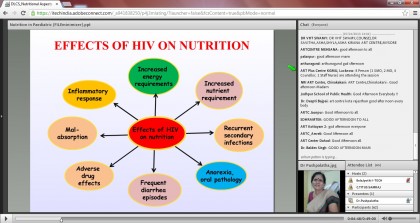 n on National ART Guidelines in 2012.
n on National ART Guidelines in 2012.
 You just became the Country Director for I-TECH Ethiopia. What has been the biggest surprise in your first few weeks at I-TECH?
You just became the Country Director for I-TECH Ethiopia. What has been the biggest surprise in your first few weeks at I-TECH? The project has taken a novel approach to recruiting participants by staging a two-week awareness campaign that incorporates comedy, music, and film. The group has engaged the services of popular local comedians Chindime and Samalani and the Health Education Band of the Ministry of Health. VMMC promotional film documentaries will also be shown.
The project has taken a novel approach to recruiting participants by staging a two-week awareness campaign that incorporates comedy, music, and film. The group has engaged the services of popular local comedians Chindime and Samalani and the Health Education Band of the Ministry of Health. VMMC promotional film documentaries will also be shown.